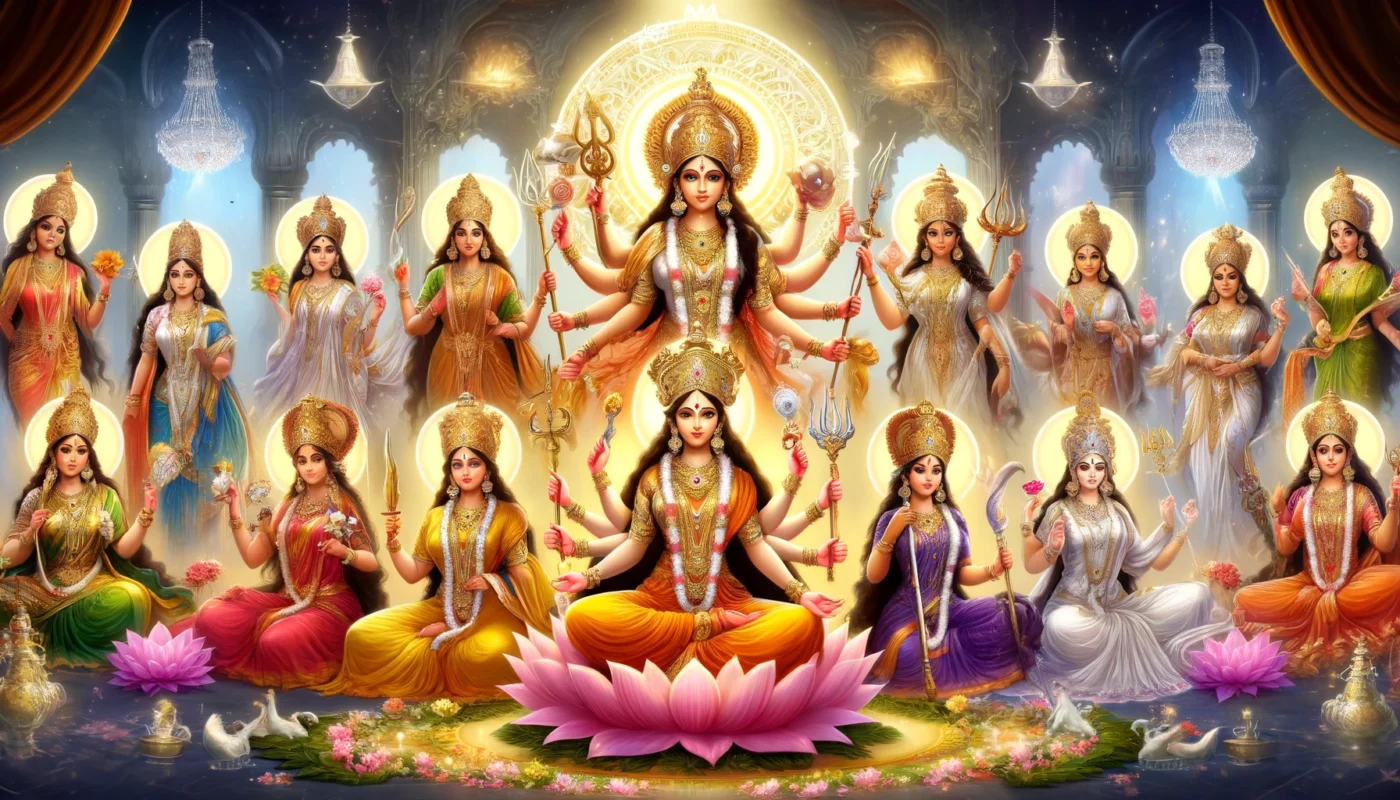The foundation of Hinduism is the Supreme Goddess, Adi Shakti, whose blessings dissolve all hardships in a moment. Navratri is a sacred festival dedicated to the worship of Adi Shakti, the Primordial Energy, known as the Universal Mother. Whoever receives her grace lives a blessed life, for it is considered a rare fortune to become a recipient of the Divine Mother’s kindness.
Adi Shakti, or Adi Parashakti, represents the “First Supreme Energy” in Sanatan Dharma. She is the Mahadevi (the Great Goddess) and Ambika (Mother of the Universe), existing everywhere and in everything. The Vedic scriptures describe the worship of the nine forms of Adi Shakti, Goddess Durga, during Navratri. Each form of the Mother is highly revered in Hinduism.
The nine days of this festival are considered pure and sacred for worshiping Mother Bhavani. It is believed that during these days, Goddess Durga visits Earth and fulfills the wishes of her devotees.
Over the nine days, devotees worship the nine forms of Durga:
- Day 1: Shailputri,
- Day 2: Brahmacharini,
- Day 3: Chandraghanta,
- Day 4: Kushmanda,
- Day 5: Skandamata,
- Day 6: Katyayani,
- Day 7: Kalaratri,
- Day 8: Mahagauri,
- Day 9: Siddhidatri.
Rituals and Importance of Navratri Worship

Navratri is an auspicious time for worship, devotion, and reverence to the Divine Mother. It is believed that all prosperity in our daily lives is a manifestation of the Goddess, and these rituals express our gratitude and expanded awareness towards creation. The proper ritualistic worship of all nine forms of the Goddess is outlined in the sacred scriptures:
“Prathama Shailputri, Dvitiyam Brahmacharini. Tritiyam Chandraghanta, Chaturtham Kushmanda. Panchamam Skandamata, Shashtam Katyayani. Saptamam Kalaratri, Ashtamam Mahagauri, Navamam Siddhidatri — these are the celebrated names of Navadurga, revered by Brahma and the great souls.”
Each of the nine forms of the Goddess represents the source of all accomplishments. By reciting the names of these nine forms, our consciousness awakens, and we feel centered, fearless, and peaceful. As you reach a profound state of worship and experience through devotion, you connect to a divine consciousness. In this state, you experience the flow of energy and realize that the Supreme Power is close.
Essential Practices for Navratri Rituals
During Navratri, devotees should abstain from meat and alcohol. Navratri rituals are meant for both men and women, and consistency in time, place, and count of practices is essential. Such discipline enhances the power generated through these rituals, as irregularity in any practice makes it challenging to achieve success.

Therefore, it is essential to observe purity of body, thoughts, and mind during each ritual of Navratri. Observing celibacy, or Brahmacharya, for nine days is mandatory, as is fasting. Those who can should live on fruits and milk. Here are three additional rules to observe during Navratri:
- Avoid soft bedding during these nine days.
- Perform personal tasks, like washing your clothes, independently without relying on others.
- Avoid any violent substances such as eggs, fish, meat, or alcohol.
At the end of the nine days, on the tenth day, the ritual is considered complete. On this day, three key acts should be performed: Havan (fire ceremony), Brahman Bhoj (serving food to Brahmins), and Kanya Bhoj (serving food to young girls).
Enhance the sanctity of your worship and rituals with our fragrant incense sticks, specially crafted for your divine experiences.







